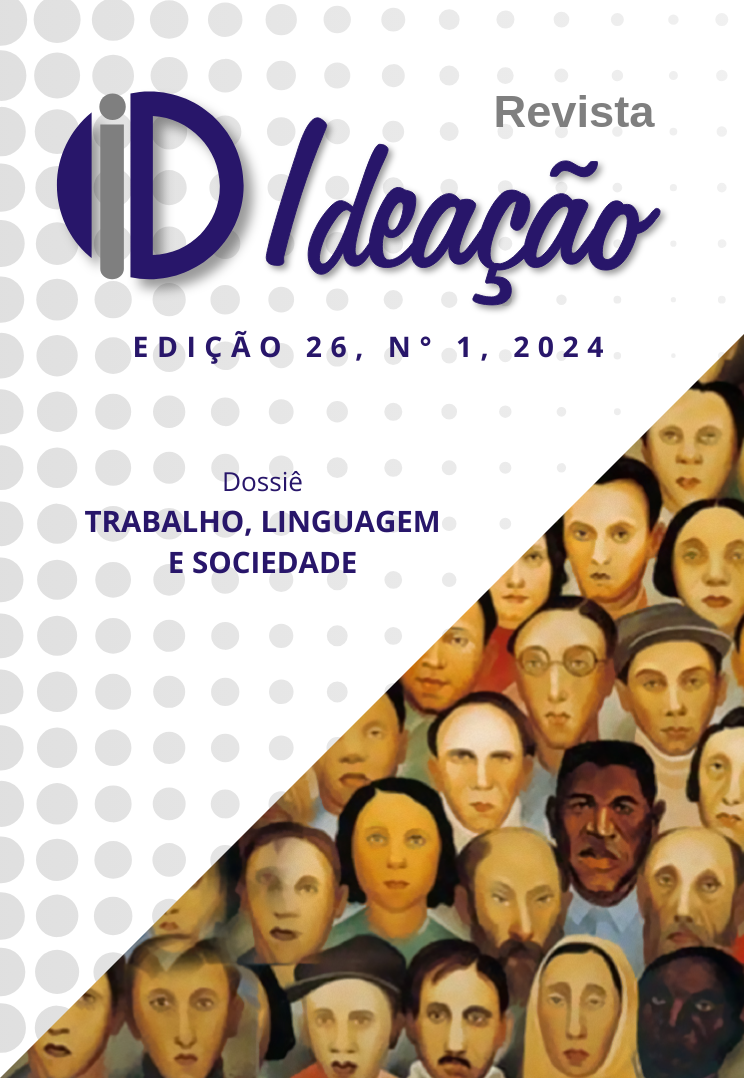Viola xadrez e liminaridade: anotações epistemológicas entre a antropologia e a história oral a partir da teoria de fronteiras
DOI:
https://doi.org/10.48075/ri.v26i1.31728Palabras clave:
epistemologia, teoria de fronteiras, liminaridadeResumen
Mediante a revisão de contribuições teóricas de autores como José de Souza Martins e João Pacheco de Oliveira, promove-se breve inventário de noções, conceitos, categorias epistemológicas que se julgam proveitosas para o desembaraço da proposta de pesquisa encetada em sede de História Oral, qual seja, focalizar a sucessão de três gerações de proprietários de uma “fábrica” de instrumentos musicais de cordas situada no interior do Estado de São Paulo, Brasil. As noções e conceitos buscados invariavelmente acenam para a necessidade de o pesquisador em Ciências Sociais adotar como metodológica a noção mais geral de “liminaridade”, cujas nuances são explicitadas pelos autores ao enfrentarem questões concernentes à teoria de fronteiras. De tais explicitações, parte-se para cotejo com pesquisa antropológica realizada por Rainer Miranda Brito acerca das atividades atuais da aludida fábrica, evidenciando as dificuldades de alocação terminológica face aos critérios mercadológicos atuais, o que leva o autor do presente texto a entendê-la também como possível caso de “liminaridade”.
Descargas
Publicado
Cómo citar
Número
Sección
Licencia
Derechos de autor 2023 Direitos partilhados conforme licença CC BY-NC-SA 4.0

Esta obra está bajo una licencia internacional Creative Commons Atribución-NoComercial-CompartirIgual 4.0.
Política a respecto de publicaciones periódicas de libre acceso
Los autores que publican en esta revista están de acuerdo con los siguientes términos:
1. Los autores conservan los derechos de autor y conceden a la revista el derecho de primera publicación, y la obra se licencia simultáneamente bajo la Licencia de Atribución de Creative Commons, lo que permite que la obra se comparta con el reconocimiento de la autoría y la publicación inicial en esta revista.
2. Los autores están autorizados a asumir contratos adicionales por separado, para la distribución no exclusiva de la versión de la obra publicada en esta revista (por ejemplo, para publicarla en un depósito institucional o como capítulo de un libro), con reconocimiento de la autoría y la publicación inicial en esta revista.
3. Se permite y alienta a los autores a que publiquen y distribuyan su trabajo en línea (por ejemplo, en repositorios institucionales o en su página personal) en cualquier momento antes o durante el proceso editorial, ya que ello puede generar cambios productivos, así como aumentar el impacto y la citación del trabajo publicado (véase El efecto del acceso abierto).
Licencia Creative Commons
Esta obra está licenciada bajo una Licencia Internacional Creative Commons Reconocimiento-No comercial-CompartirIgual 4.0, que permite compartir, copiar, distribuir, exhibir, reproducir, en su totalidad o en partes, siempre que no tenga un propósito comercial y se citen los autores y la fuente.


